
Salmon – Facts and Benefits
Salmon is the name given to severalspecies of fish that belong to the family of Salmonidae. These fish live in the Pacific and Atlantic Oceans and also in the North American Great Lakes.
Most salmonsare born in fresh waters and go to the ocean and live there. But, they arespecific, since they return to the fresh waters of their origin to reproduce.
It is provento maintain healthy heart and mental functions, but also to prevent cancers inthe body. Rich in omega 3 fatty acids, this fish is great for the heart. It strengthensthe heart muscles, decrease LDL (“bad”) cholesterol and therefore preventsheart attack and stroke. The same omega 3 fatty acids can improve your memoryand concentration, and the vitamins A and D from the fish will protect yourbrain. Selenium and omega 3 essential fatty acids are responsible foranti-cancer properties of salmon, especially in people suffering from ovarian,prostate, digestive or breast cancers.
All theingredients in the salmon are helpful for any of eye problems, inflammations ormedical conditions. The clinical studies proved the beneficial properties ofsalmon in diabetic, arthritis and cancer patients.
Salmon Calories
It is noteasy to tell how many calories there are in the salmon. It depends on the typeof salmon and its production, but also on the cooking process.
A pound ofcooked wild Atlantic salmon contains about 816 calories. The same, but raw fishhas 640 calories. There is also a difference between the farmed and wildAtlantic salmon, because farmed raw type of this salmon contains more calories,around 832 and cooked farmed salmon has some 928 calories.
Another typeis sockeye salmon. One pound of raw sockeye salmon contains 768, and the sameamount of the cooked fish has 200 calories more – 976 calories.
SalmonNutrients
Salmon isrich in vitamins, minerals and essential fatty acids and beneficial to humanhealth. This fish contain vitamins A, B6, C, niacin, thiamin and riboflavin. Thereare also plenty of various minerals, including: magnesium, calcium, phosphorus,zinc, selenium and sodium. The exact amount of the vitamins and minerals dependon the variety of the salmon and on the type of production, whether it isfarmed or wild salmon.
Besides the differencesin the amounts of vitamins and minerals, wild and farmed salmon has different contentsof fat and fatty acids. The wild Atlantic salmon is richer in omega 3 essentialfatty acids and contains less fat (both monounsaturated and polyunsaturated) thanthe farmed relative. Both types contain the same amount of cholesterol and nocarbohydrates whatsoever.


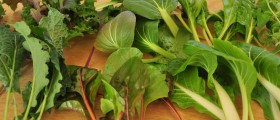
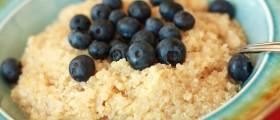

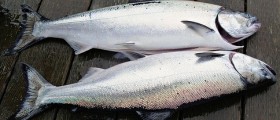
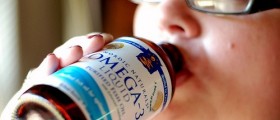


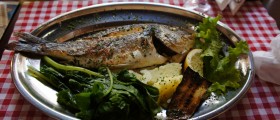
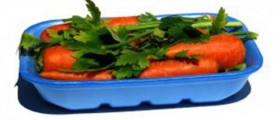

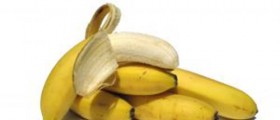


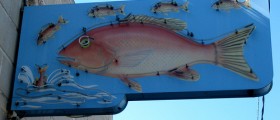
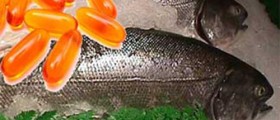
Your thoughts on this
Loading...